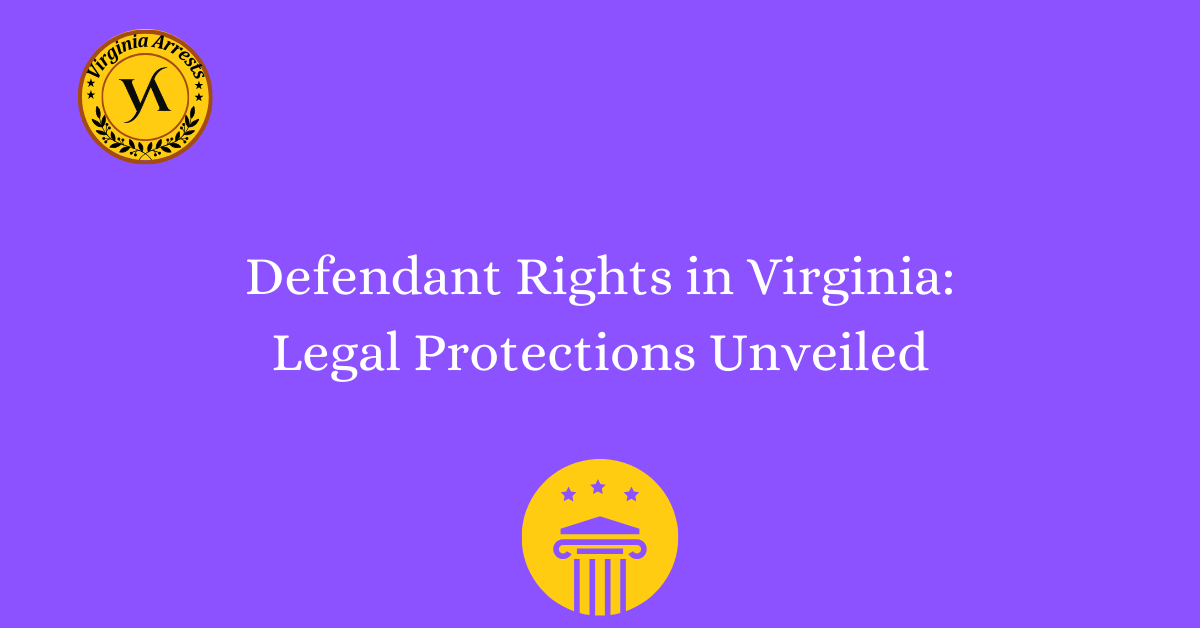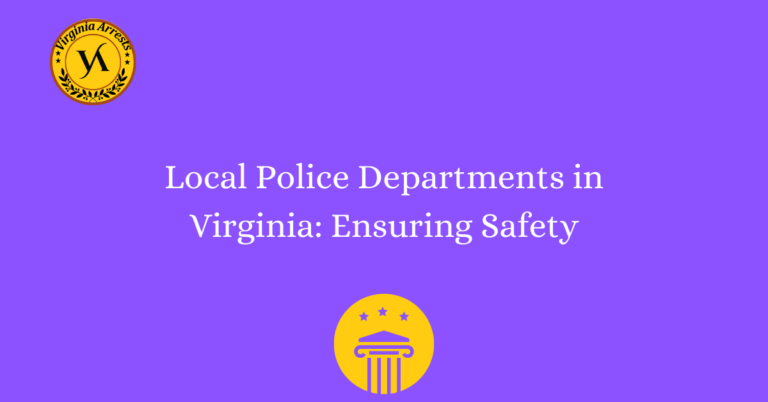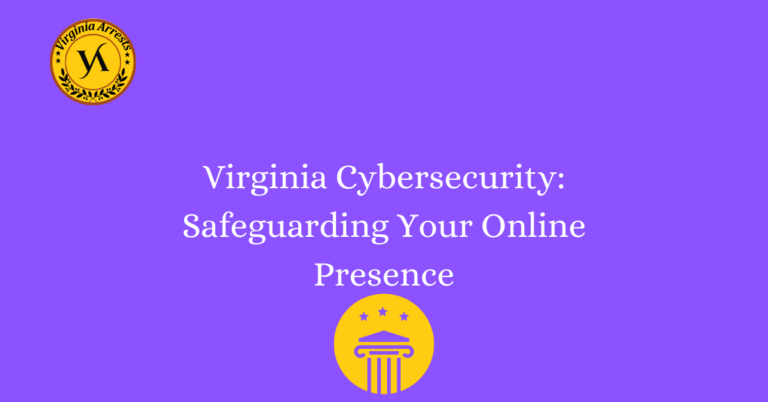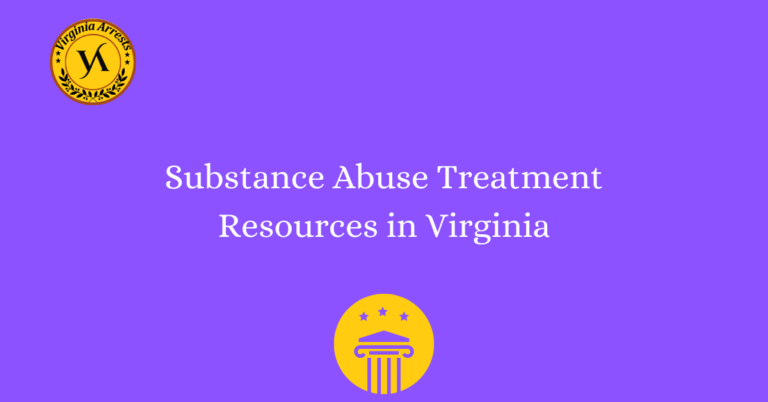Defendant Rights in Virginia: Legal Protections Unveiled
The state of Virginia provides a range of legal protections and rights for defendants involved in criminal cases. These rights are designed to ensure a fair and just legal process for all individuals, regardless of their circumstances. From the initial arrest to the conclusion of the trial, defendants in Virginia have the right to legal representation, the presumption of innocence, and protection against self-incrimination. Understanding and asserting these rights is crucial for anyone facing criminal charges in Virginia.
Legal Representation
In Virginia, defendants have the right to legal representation throughout their criminal case. This means that they have the ability to hire an attorney or, if they cannot afford one, have one appointed to them by the court. Having legal representation is crucial as it ensures that defendants have someone knowledgeable about the law and legal processes to advocate for their rights and interests.
Presumption of Innocence
The principle of “innocent until proven guilty” is a fundamental aspect of the criminal justice system in Virginia. Defendants are presumed innocent throughout their trial and it is the responsibility of the prosecution to prove their guilt beyond a reasonable doubt. This presumption of innocence is meant to protect individuals from being wrongfully convicted and ensures that the burden of proof lies with the prosecution.
Protection Against Self-Incrimination
Defendants in Virginia have the right to remain silent and cannot be forced to testify against themselves. This protection against self-incrimination is enshrined in the Fifth Amendment of the United States Constitution and is essential for ensuring a fair legal process. Defendants can choose not to testify at their trial and their decision to remain silent cannot be used against them as evidence of guilt.
The Arrest Process
When a person is arrested in Virginia, certain procedures must be followed to protect their rights. This includes informing the individual of the charges against them, their right to an attorney, and their right to remain silent. Additionally, the police must have probable cause to make an arrest, meaning they must have a reasonable belief that the person committed a crime.
The Trial Process
During a trial in Virginia, defendants have the right to a fair and impartial jury. The jury is responsible for determining the defendant’s guilt or innocence based on the evidence presented. Defendants also have the right to confront and cross-examine witnesses presented by the prosecution, as well as the right to present their own witnesses and evidence in their defense.
Conclusion of the Trial
After all evidence has been presented and both the prosecution and defense have made their arguments, the jury will deliberate and reach a verdict. If the defendant is found guilty, they have the right to appeal the decision to a higher court. If they are found not guilty, they are acquitted of the charges and cannot be retried for the same offense.
FAQs
What are defendant rights in Virginia?
In Virginia, defendants have certain legal protections that are designed to ensure a fair trial. These rights include the right to legal representation, the right to remain silent, and the right to confront and cross-examine witnesses.
Can a defendant in Virginia choose their own attorney?
Yes, defendants in Virginia have the right to choose their own attorney. They can either hire a private attorney or request a court-appointed attorney if they cannot afford one.
What is the right to remain silent?
The right to remain silent means that a defendant in Virginia has the right to refuse to answer any questions from law enforcement or prosecutors. This is to prevent self-incrimination and is protected by the Fifth Amendment of the U.S. Constitution.
What is the right to confront witnesses?
The right to confront witnesses means that a defendant in Virginia has the right to cross-examine and challenge the credibility of witnesses testifying against them. This is to ensure that the defendant has the opportunity to challenge the evidence presented against them.
Are there any limitations to defendant rights in Virginia?
While defendants in Virginia have important rights, there are certain limitations. For example, the right to legal representation does not guarantee the services of a specific attorney, and the right to remain silent does not protect a defendant from physical evidence or circumstances that may incriminate them.
Can defendant rights be waived in Virginia?
Yes, defendant rights can be voluntarily waived in Virginia, but it is highly recommended to consult with an attorney before making such a decision. Waiving rights should be done knowingly, voluntarily, and intelligently.






